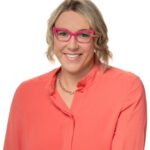
At Tucson Breast Health Specialists, we prioritize your breast health and cancer prevention needs. Under the expert care of Dr. Michele Ley, our goal is to provide top-notch preventive measures, including regular screenings and genetic testing. Let’s delve into the significance of genetic testing for breast cancer prevention and risk assessment.
Understanding Genetic Testing for Breast Cancer
Genetic testing is a valuable tool for assessing your risk of breast and other cancers. It involves analyzing specific genes inherited from your parents to detect mutations that may increase cancer risk. While not everyone needs genetic testing, it is particularly beneficial for individuals with cancer or a strong family history of the disease. Dr. Ley, a strong advocate for early detection, emphasizes its potential to save lives.
How Genetic Testing Works
The genetic testing process is straightforward. A sample of your blood or saliva is collected and analyzed in a lab for mutations in key cancer-related genes like BRCA1 and BRCA2. The results provide insights into your genetic risk, enabling us to create a personalized prevention plan. It’s important to remember that genetic testing indicates increased risk but does not guarantee the development of cancer. Also, not having a gene mutation or negative testing result does not mean you will never develop cancer. Many factors including genetic testing are used to assess your risk.
Gene Mutations and Breast Cancer Risk
BRCA1 and BRCA2 mutations are the most well-known gene changes associated with an increased risk of breast cancer. Women with these mutations have a higher likelihood of developing breast, ovarian, and pancreatic cancers. Men with BRCA mutations also face increased risks for breast, prostate, and pancreatic cancers, with BRCA2 specifically linked to higher melanoma risk. Other gene mutations can also contribute to breast cancer risk these include CHEK2, PALB2, TP53, ATM, among others.
What to Expect with Genetic Testing
Before testing, it’s essential to understand what the results may reveal. Genetic counseling before and after testing is crucial to interpret results accurately. Results may be positive for a mutation, negative, inconclusive, or show a variant of unknown significance (VUS). Your genetic counselor and Dr. Ley will help you understand these results and their implications for you and your family.
Why Choose Tucson Breast Health Specialists
At Tucson Breast Health Specialists, you receive comprehensive care and support. Dr. Michele Ley, a board-certified breast surgical oncologist in Tucson since 2006, offers compassionate, personalized care, using the latest research to tailor treatment plans. She specializes in surgical care for breast cancer and high-risk patients, employing minimally invasive techniques and oncoplastic surgery for optimal outcomes. Our high-risk program helps patients understand their risks for future breast cancer and develop specific strategies to reduce these risks.
Contact Us
Are you ready to take charge of your breast health? Complete our online contact form to schedule a consultation with Dr. Michele Ley. We will guide you through the genetic testing process, address your questions, and provide the support you need. Empower yourself with the knowledge to make informed health decisions and partner with us on your journey to optimal health.
Michele Ley, MD, FACS
Dr. Michele Ley, a breast surgical oncologist in Tucson since 2006, combines compassionate care with cutting-edge techniques to provide personalized treatment plans for breast cancer and high-risk patients. With a medical degree from St. Louis University, residency at the University of Arizona, and fellowship at UC San Francisco, Dr. Ley is board-certified in General Surgery and a member of the American Society of Breast Surgeons. Her experience as a medical director for breast programs and her own journey as a breast cancer survivor at age 44 uniquely position her to offer empathetic and expert care to her patients.






